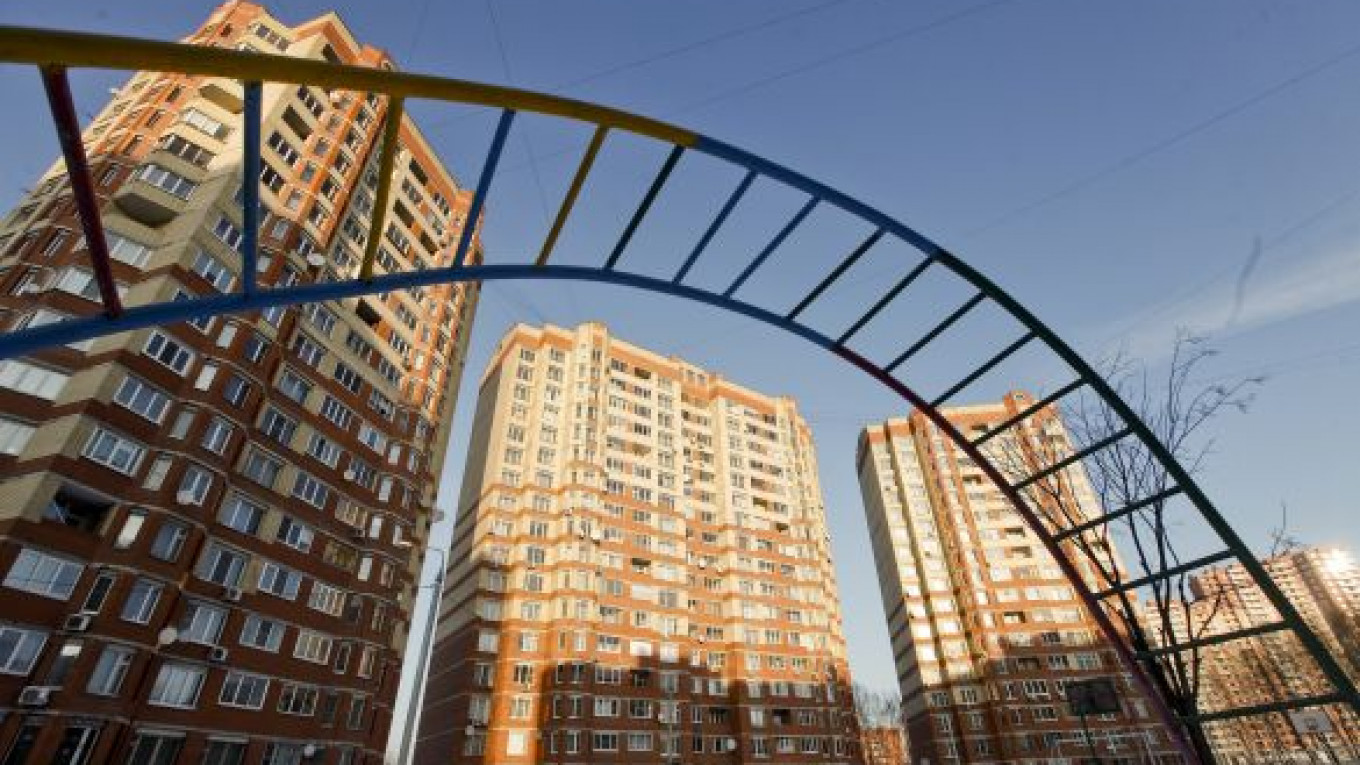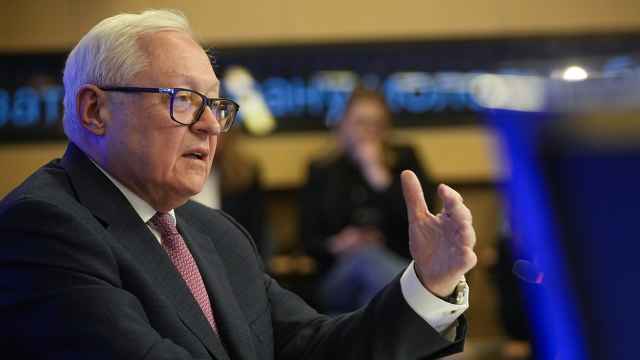Two government agencies are linking arms with the Skolkovo Innovation Center to offer small companies and academic teams the chance to sell their energy-efficiency technology throughout Russia in the government’s ongoing modernization effort.
Over the next five weeks, Skolkovo will hold a competition to find the best in new energy-efficient technologies for housing and utilities, including for lighting buildings, supplying electricity and conserving water and heat.
Speaking at the five-star Lotte Hotel in downtown Moscow on Wednesday, aides and officials from the Regional Development Ministry and the Energy Ministry joined a top director from Skolkovo, the government innovation project that is expected to make its home outside Moscow, to announce the contest.
When it comes to who should be convinced by energy-saving technologies generated through the competition, “the homeowner is the most important,” said Yury Osipov, an aide to Regional Development Minister Viktor Basargin. Noting that 90 percent of Russians own their homes — most of which are apartments — Osipov said the technology should impress homeowners with a reasonable initial price and respectable energy cost savings.
The job of judging the competition will fall to executives and innovation division chiefs “from leading companies in the housing and utilities sector,” Skolkovo said in a press packet distributed at the event. Executive government agencies also might contribute judges. Vasily Belov, executive director of Skolkovo’s energy-efficient technology cluster, said in a telephone interview after the news conference that the competition jury will have about nine to 10 members who will be chosen by his cluster.
“Well, by me, for all intents and purposes,” he added. Belov emphasized that jury members “don’t have any ties to the Skolkovo fund” and said their names and affiliations will be announced in about two weeks.
Belov, a 30-year-old who has headed a new projects division at aluminum giant RusAl and the projects office of the energy-efficiency working group for President Dmitry Medvedev’s modernization commission, couldn’t name the jury members now because he hasn’t gotten their agreement in writing, he said.
Belov, whose cluster is one of the five research areas at Skolkovo, said the Regional Development Ministry’s role in the contest will be to make introductions and build business ties between regional governments and the winning teams and companies. The Russian Energy Agency, the energy-efficiency arm of the Energy Ministry and the other government entity involved, will connect the winners with energy projects, Belov said.
Contestants have until April 19 to submit their proposals. In the cluster’s one previous contest this year, held in February for ideas for electrical supply services, 50 projects were submitted and 12 of them were selected, Skolkovo said in its press packet.
The Russian Energy Agency will “guarantee practical implementation” of the innovation winners and will search for partners or co-investors “that will be interested in commercializing and contributing additional investment in the new technologies,” Russian Energy Agency general director Timur Ivanov said through a spokesman.
“We are holding talks … with foreign companies interested in entering the Russian market, along with funds that are trying to invest in high-technology fields and energy efficiency, including in housing and utility services,” Ivanov said.
The government has been making a big push for energy conservation as part of Medvedev’s modernization plan. In 2009, it passed an energy efficiency outline for the next 11 years and approved a national energy strategy for the next 21 years. Many areas of the country have made and carried out their own regional programs, Alexei Polyakov, general director of Prosperity Project Management and an adviser to the Green Building Council Russia, said by e-mail.
Apartments and utilities with greater efficiency couldn’t be more needed in Russia. Polyakov said the housing and utility sector could provide about two-thirds of the energy savings possible in Russia. That is based on recommendations from consultants on environmental issues, however, and such suggestions “aren’t effectively functioning government programs.”
A Message from The Moscow Times:
Dear readers,
We are facing unprecedented challenges. Russia's Prosecutor General's Office has designated The Moscow Times as an "undesirable" organization, criminalizing our work and putting our staff at risk of prosecution. This follows our earlier unjust labeling as a "foreign agent."
These actions are direct attempts to silence independent journalism in Russia. The authorities claim our work "discredits the decisions of the Russian leadership." We see things differently: we strive to provide accurate, unbiased reporting on Russia.
We, the journalists of The Moscow Times, refuse to be silenced. But to continue our work, we need your help.
Your support, no matter how small, makes a world of difference. If you can, please support us monthly starting from just $2. It's quick to set up, and every contribution makes a significant impact.
By supporting The Moscow Times, you're defending open, independent journalism in the face of repression. Thank you for standing with us.
Remind me later.






